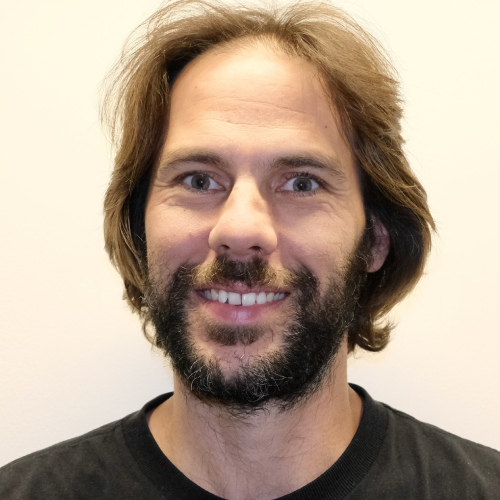

André Benine is a Researcher and Associate Professor at the University of Bordeaux in the Engineering department.
He has been conducting a successful scientific virtual exchange collaboration together with Alexandra Reynolds from the Language department and the University of Cincinnati in the US. It’s a blended mobility programme, which says André, began informally a number of years ago, but is now a fully accredited official course within the University of Bordeaux.
Grading the virtual exchange
“The grade the student receives after completing this VE replaces their English grade. Therefore, by doing this course, they acquire credits for their English.”
“The Idea is that students acquire basic knowledge for literature research in the fields of science and technology’, he continues. “And while the Cincinnati participants are mostly from the disciplines of chemistry, biology and biochemistry, the Bordeaux participants include also engineering, physics, mathematics, computer sciences and environmental engineering.
How the topics are defined
“We choose the topics together with the students. Then we form groups of four, two from Bordeaux and two from Cincinnati. We make sure the topics are scientifically broad enough to enable the students to work together. They then read literature on the topic, they research the trends. Finally, they prepare a presentation to show what they have found out during this research.”
André says that the work is done in English and all the interactions he has with the students is in English. But in their groups no doubt they use French together!
As the VE progresses and the students begin to collaborate together, their confidence and their soft skills begin to grow. They learn how to be confident working in an international environment, how to organise themselves for their weekly meetings and how to write reports and set the next steps for the required tasks each week.
“They define the tasks for the coming weeks, as they understand and learn how to read the scientific papers, and to identify which sources are reliable.
“We keep the topics broad, like water sustainability for example, and this is so everyone can contribute and see how each expertise works. I wouldn’t say they dig too deeply into the topics. But soft skills and communication skills really come to the fore especially when they need to present their results at the end. And it is important that context, trends and research are explained clearly, as I said before, because no one is a specialist in all studied topics.”
The role of peer-to-peer learning
André stresses that the aspect of peer-to-peer learning is a strong element throughout. So, for example, AI knowledge from the computer scientists can help the biology students to understand how AI may work in their field.
During the VE, students are really autonomous, and the teachers’ contribution is mainly at the start. Once the programme gets rolling, they all step back and allow their students find their own way.
To keep up motivation, André explains that the places remain restricted to 10. He says he and Alexandra choose the participants with great care and screen them thoroughly. They have never encountered problems with motivation up to now. Students need a decent level of English to be able to communicate, they need good academic results and they need to demonstrate they are comfortable dealing with the extra workload. These are the main criteria.
“They know why they are doing this and subsequently some apply for international programmes, so actually it is a good stepping stone for the future.”
How to make the physical meet up successful
For the physical mobility, André explains how the students begin working online, using a shared file and drive, in the month of January. They begin to get to know each other online in March and during the spring break, the Cincinnati students visit Bordeaux. During the visit, they visit labs, attend courses and lectures. And they will also enjoy typical cultural activities that include a bit of wine tasting, cultural visits and restaurants. “We have a lot of fun”, smiles André.
When the Bordeaux students visit Cincinnati in the month of May, they too attend both academic and cultural events, such as a baseball game! “We vary the activities each year a little”, says André.
Why tutors should be motivated to do virtual exchanges
As a tutor, André says he is motivated to do these exchanges in spite of the extra work as he himself is a product of an international environment.
“I am originally from Brazil, then I lived in Germany and Switzerland. Now I have lived in France for many years, so I believe the skills the students learn during this VE are vital as preparation for their future work. I worked for an American car manufacturer in Brazil and I had to deal with employees from Germany, South Africa and elsewhere. I consider it an important aspect to bear in mind as more and more work is across borders. Oh, and speaking English too, is really helpful.”
“Being aware of cultural differences makes it easier. As a product of an international environment, I really see how doing this helps our students with making decisions in the future to go abroad for example. It acts as a trigger to take bigger steps later as they acquire a taste and will maybe go on to do a PhD or masters or internship abroad…..VE is an important first step towards this.”
